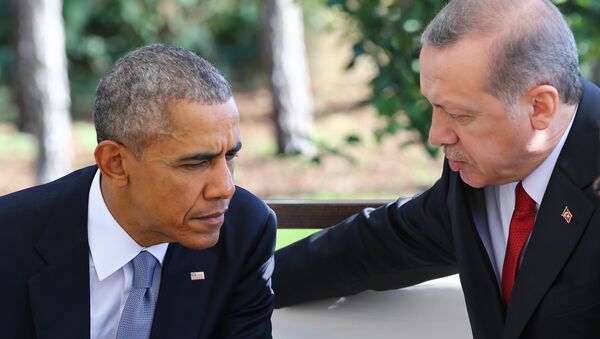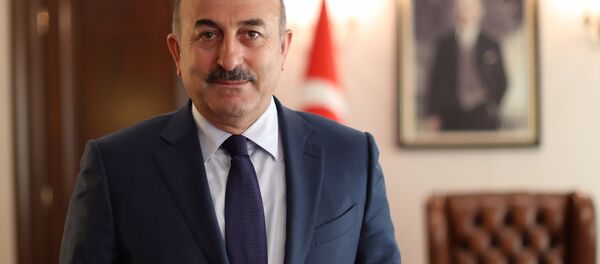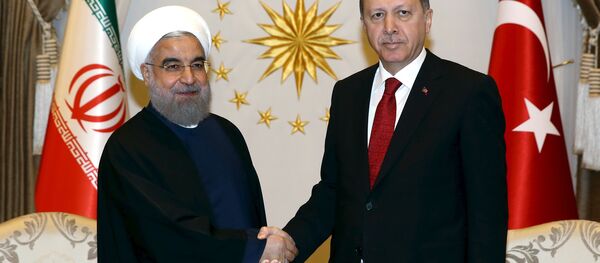"I think that Erdogan could become a kind of a 'bridge' as he is trying to improve relations with Russia and preserve ties with the US," deputy director of National Institute for Modern Ideology Development said. "Since Washington does not want to lose Ankara, policymakers in the US could opt for a more constructive approach towards Russia."
Both anti-Daesh coalitions could then increasingly coordinate their efforts in Syria. In this case, "they will be able to defeat terrorists faster," he said.
Turkey made a U-turn in its foreign policy when Binali Yildirim replaced Ahmet Davutoglu as the country's prime minister. The latter is said to have been the architect of Turkey's previous strategy in Syria that involved supporting radical groups trying to overthrow President Bashar al-Assad.
Meanwhile, the unsuccessful attempt to forcefully remove Recep Tayyip Erdogan in mid-July reinforced Ankara's thaw with Moscow and Tehran, much to Washington's discontent.
"The response to the July 15 coup showed who Turkey's friends and enemies are," Shatrov said. Russia and Iran expressed their firm support to the Turkish leadership, while reaction from the West was largely muted, focusing on the subsequent purges rather than the coup itself.
These developments have already brought the three countries closer together, but they could go as far as forming a coalition that would focus on resolving the Syrian crisis.
The alliance, comprising Russia, Iran and Turkey, could last for a long time, but it would take "tectonic shifts" since Turkey is a NATO member.
The West will not be happy with these changes, should they occur.
"Russia's improving relations with Iran and the deployment to the Hamadan airfield have already caused a stir," he observed.
Shatrov maintained that Erdogan needs to decide what his priorities are: dealing with the Kurdish issue, domestic opposition, Fethullah Gülen and his supporters, backed by the US, or Assad. "I think he will make certain decisions with regard to these issues soon," he said.




